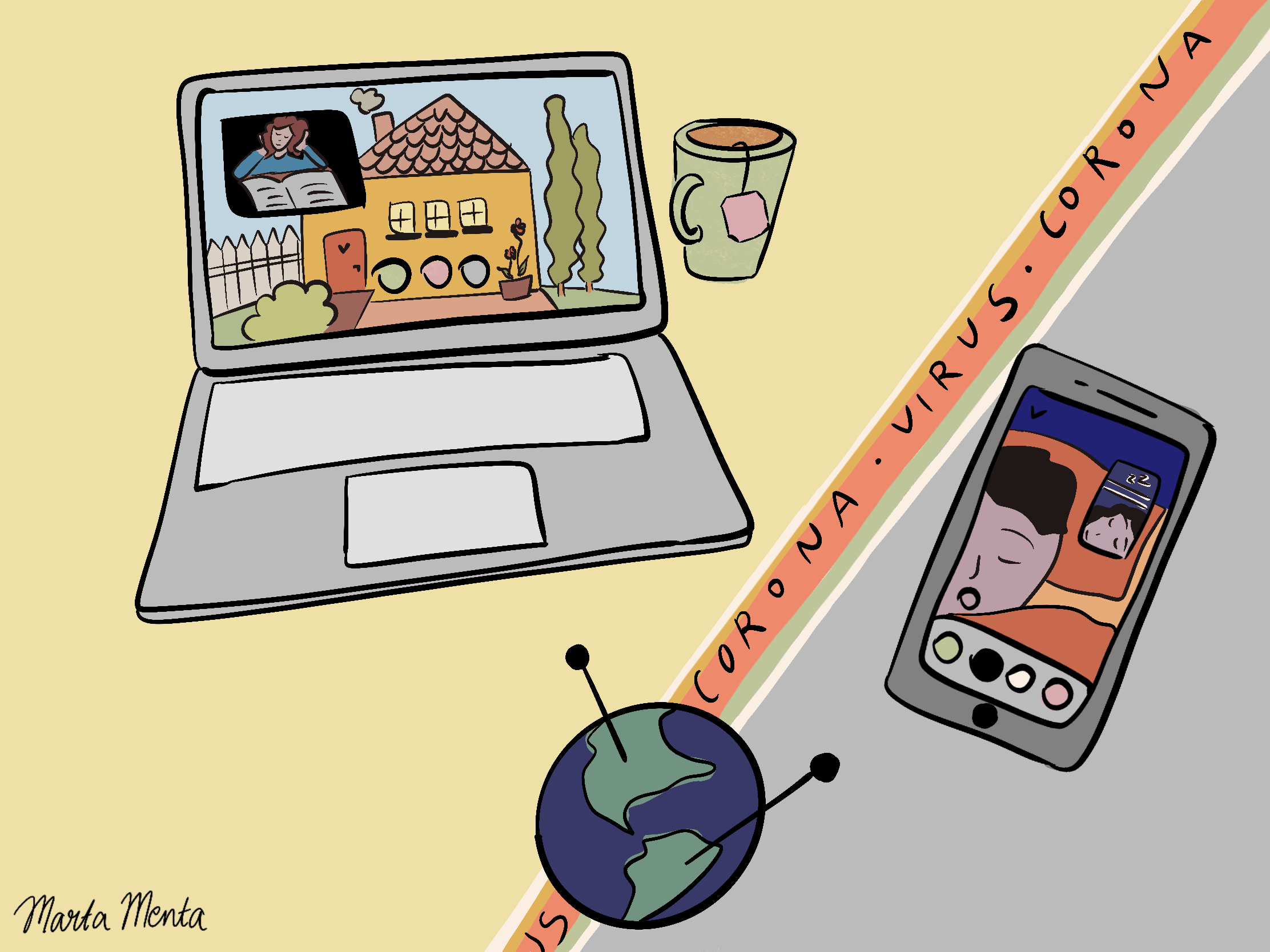While anxiety has been a problem affecting students forever, it has only been exacerbated by the trials of Zoom learning. There is a whole host of people who are experiencing social anxiety for the first time in lectures, seminars, and events. Online learning doesn’t appear to be going away particularly soon, so it is important to treat this like a long-term problem deserving of a solution from College. While it is difficult for lecturers to account for each individual student (and nor should it be something we should ask of them) there are measures which can be put in place to ease these anxieties.
Learning online (particularly in the participation-heavy seminar space) presents a completely new set of social rules and problems for students. It is more difficult to engage with seminar leaders and other students, and speaking itself becomes something less intuitive and more considered with the necessary raise-hand settings. There is a clinical element to Zoom which prohibits genuine discussion from being had. While this is an unavoidable consequence of a socially distant life, it is fertile ground for new anxieties— from the peculiar feeling of being watched to the fear that you have said something stupid (the ability to offer affirmation to those who are speaking in academic settings is perhaps one of the saddest losses to online learning.) Even small things, like being unable to go for coffee or have a chat with someone who you may have disagreed with after class can increase anxiety over academic interactions.
All of this is, of course, brought to the forefront by the physical circumstances we are all in right now. There have been fundamental shocks to our family situations, our financial situations, our health situations. How can students not be expected to bring these problems with them to class, especially when class now happens in the same setting as all of those issues? There are many ways to ease this for students at a structural level: increased access to free student counselling, school-wide policies which relax attendance/late-submission penalties. However, some simple changes to how we view seminar learning can significantly relieve pressure on these structures. The first thing we must reconsider as an academic community is how we view class participation.
“Camera-on policies are rooted in the bad-faith beliefs that it is impossible to engage with a seminar without contributing verbally, and that unless monitored, students won’t pay attention to classes.”
Camera-on policies are rooted in the bad-faith beliefs that it is impossible to engage with a seminar without contributing verbally, and that unless monitored, students won’t pay attention to classes. The idea that the only way to assess engagement in a course is via verbal contributions is just incorrect. While it makes sense in a live setting to mark students on their verbal contributions, this doesn’t have to be the only way. The chat functions on Zoom and Blackboard Collaborate Ultra present an opportunity for students to engage with the topic of a seminar in a less anxiety-inducing way. Both taking this into consideration when assessing participation and making an effort (from students and lecturers) to actively engage with contributions from the chat makes the seminar environment far more comfortable for those who find themselves struggling to speak. As well as this, students can engage in-between classes using services such as the discussion forum on Blackboard, or a class board on Padlet.
The idea that a camera-on rule ensures that students are engaged is also very flawed. It is both possible to engage in a class without being visible, and to be completely disengaged with your camera on. It only serves to promote student anxiety where unnecessary, and may even encourage some students not to show up at all. If the priority is student engagement, policies like these are completely unproductive.
“Both students and staff should be far more lenient with one another.”
More generally, both students and staff should be far more lenient with one another. Although it has been a year since we began online learning, it’s important to remember that despite the persistence of the pandemic, these circumstances remain incredibly difficult for even the least anxious people. If a student has their camera off in class, the assumption should not be that they’re lazy or disengaged for the sake of it, but that they may need some additional support. It is always impossible to know exactly what someone else is going through, but particularly in times like these, negative assumptions will only disengage people who may have far more on their plate than we realise.
As digital learning appears to be with us for a little while more, it’s important to recognise the fundamental shift it has brought to many students’ mental health. While Zoom may be impossible to escape, it is possible for students’ anxieties to be significantly eased by those who lead seminars and tutorials. This can only be done through a re-evaluation of how we see class participation, and a generous attitude to student behaviour in general. While online learning may feel normal by now to some, it remains distressing for many. The addition of pressures like camera-on policies and penalties for a lack of verbal-contribution only serve to further alienate students from learning.






